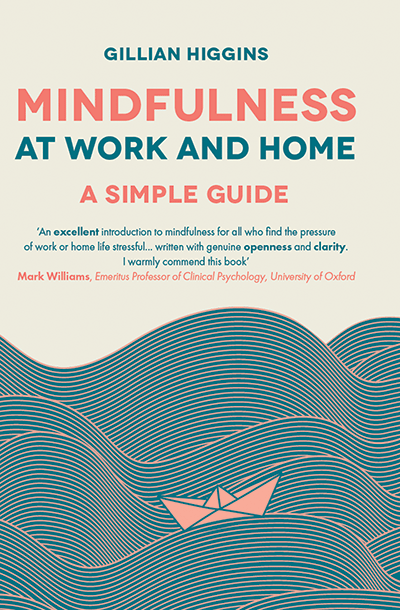Pressures of practice
The legal profession has seen radical changes in the last decade. Against the backdrop of legal aid cuts, firms have merged and premises have been downsized. The quickening pace of litigation, competition for work and reduced resources are taking their toll on those of us who remain ‘in the ring’. There are ever-increasing demands upon lawyers to be available and accessible. The Junior Lawyers Division’s 2019 Resilience and Wellbeing survey reported that over 93% of respondents felt stressed in their role the month before completing the survey, with almost a quarter being severely or extremely stressed. Importantly, over 77% of the respondents felt that their firm could do more to tackle stress at work.

Increased awareness of mental health problems within the profession has led many firms to introduce wellbeing programmes, focusing on the management of stress, sleep, nutrition, exercise, parenting and yoga. One practice that has gained in popularity in recent years is mindfulness.
Mindfulness
Mindfulness involves paying attention to moments of everyday life with curiosity and openness. It is about dropping into the present experience and being aware of what you are doing, while you are doing it, with a non-judgmental attitude. It is about experiencing the ‘here and now’, rather than hankering after what you would like life to be. Mindfulness trains you to observe thoughts as they arise, without over-analysing or over-identifying with them. It gives you the space to respond, rather than react when things go wrong.
Mindfulness can be practised in different ways. One is to learn meditation, paying attention to your moment-to-moment experience with acceptance, patience and kindness to yourself. Another is to use ‘daily mindfulness practices’. These are instances where you pause, breathe and bring moment-to-moment awareness to an aspect of your everyday life, such as brewing your tea or taking your morning shower. By pausing in this way, you take in your experience fully, rather than racing through the day on automatic pilot.
Modern-day mindfulness began in the US with Dr Jon Kabat-Zinn, who founded the Stress Reduction Clinic at the University of Massachusetts in the 1970s. In the UK it was not until the 1990s, with the seminal work of Mark Williams, John Teasdale and Zindel Segal on depression, that the concept entered the mainstream. Since then, there has been a proliferation of groups and websites where you can learn how to practise mindfulness and incorporate it into daily life.
Mindfulness within the profession
Turning to the legal profession, it is fair to say that mindfulness has taken its time to percolate through to lawyers – often perceived as fearless, robust and self-sufficient. Over recent years, however, a growing number of law firms have introduced mindfulness into the workplace by engaging trained teachers to host seminars and workshops.
The initial focus on the ability of mindfulness to improve efficiency in output has shifted towards the contribution it can make in safeguarding mental health. For some practitioners, it provides a welcome pressure-release to help manage the effects of stress. It gives space for reflection, response and compassion, all of which are capable of transforming the workplace. Some City firms have begun allocating meditation rooms, set up mindful sitting or walking groups and encouraged the practice of mindful eating, where you take time to relish your food, its flavour and origins.

Mindfulness has also gradually found its way to the bar. Following the first Wellbeing at the Bar report in 2015, Middle Temple and Gray’s Inn held mindfulness sessions for barristers - the first such wellbeing initiatives in this field.
In 2018, the Mindfulness in Law group was created as a resource for all legal professionals and others working in the legal industry to learn and deepen their mindfulness practice and promote wellbeing and mindfulness education within the profession. The group now meets monthly in London with the support of the Law Society. Alongside the initiatives taken by firms across the country, the institutional framework of mindfulness is strengthening as the Bar Council and Law Society recognise its importance.
While empirical research on how practising mindfulness affects members of the profession is thin on the ground, there are growing calls for more professional-specific research. What we do know is that regular mindfulness meditation can enhance self-awareness and interpersonal relationships - which is good for lawyers and non-lawyers alike. Over 4,500 peer-reviewed reports support the benefits that mindfulness can bring. Research shows that mindfulness meditation practice improves concentration, ability to pay attention, decision-making and working memory. It reduces stress, lowers the heart rate and blood pressure, strengthens the immune system, alleviates insomnia and reduces anxiety and depression. It also encourages emotional stability by enabling you to observe feelings rather than getting caught up in the drama of how you perceive life.
Mindfulness is here to stay. Earlier this year, international law firm Dentons appointed its first chief mindfulness officer, joining the ranks of Google and IBM. Other firms and chambers look set to follow suit, with the growth of wellbeing committees, officers and other mindful initiatives, such as the Mindful Business Charter.
While it is not an answer to the various ailments of the legal profession as a whole, adopting a regular practice of mindfulness can go a long way to making us better lawyers and kinder colleagues.
Gillian Higgins is an international criminal barrister at 9 Bedford Row. She is also the founder of Practical Meditation. Her first book, Mindfulness at Work and Home, is published by RedDoor Press and is available at practicalmeditation.co.uk































No comments yet